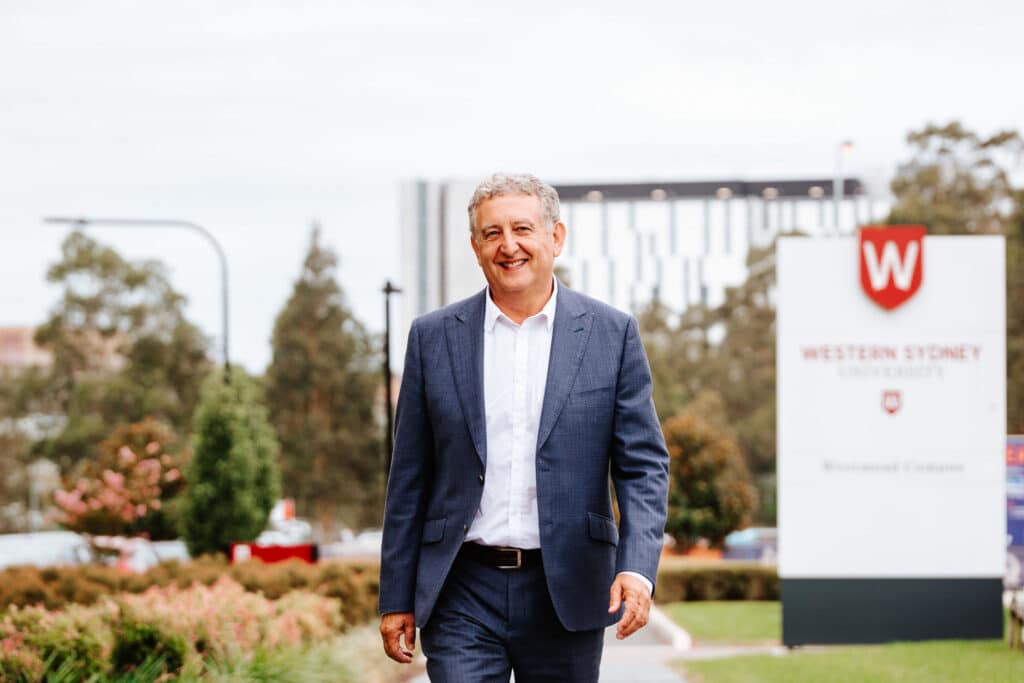A trio of medical trials will take centre stage for Oz Medicann Group (OMG) in 2024 as it makes good on its pledge to put patients at the heart of its research and development.
The company will collaborate with NICM Health Research Institute at Western Sydney University to test the efficacy of three CBD medications, working on one project with the Medical Research Institute of New Zealand in Wellington.
Each of the research projects are at different stages. But they share the same ultimate aim of providing innovative cannabinoid remedies for sleep, anxiety and pain.

The projects are being overseen on behalf of OMG by Emeritus Professor Alan Bensoussan, a former director of NICM, who said he was drawn to working with OMG by the principals of its founder, John Leith.
“I’ve known John for about five years and his company is dedicated to high-quality research in the pharmaceutical application of medicinal cannabis,” he said. “OMG is focused on drug development and production innovation.”
The first of the medical trials, flagged last year by Leith, will see OMG put its schedule 3 over-the-counter sublingual CBD tablet through its paces.
Ethics approval has already been received, with a phase IIb/III clinical trial to run concurrently at NICM’s Western Sydney University site and at the Medical Research Institute of New Zealand.
The double blind, randomised, placebo-controlled trial will see 300 patients administered either a 75mg dose of CBD, 150mg – the maximum allowed under the Therapeutic Goods Administration down scheduling – or a placebo.
Bensoussan said the month-long intervention will be powered to “get a definitive answer for one or both of the dosages”.
Significant work has already gone into the development of the sublingual tablet, with the veteran researcher revealing the firm’s “excitement” at the possibilities.
“We are now in the throes of refining the tablet,” he told Cannabiz. “One of the exciting aspects of this tablet is the more rapid absorption in a dosage form that’s easier to take.
“A large number of consumers, particularly older consumers, have difficulty swallowing tablets. A sublingual tablet is a way of addressing that issue.
“It’s also a way of achieving more rapid absorption through the oral mucosa. The CBD enters straight into the bloodstream, bypassing liver metabolism. For the purposes of sleep, that’s a big positive.”
Ahead of the trial itself, which is expected to begin in the second half of the year and will use the insomnia severity index to measure results, a pharmacokinetic (PK) study will be conducted to assess the relative bioavailability of the OTC candidate.
Preliminary research in that area has already revealed encouraging results, Bensoussan confirmed.
“We’re working with a major international ingredient supplier who has done developmental work on this and demonstrated improved bioavailability,” he explained. “The PK study will compare the bioavailability of CBD in the sublingual tablet with CBD isolate in a tablet that’s absorbed in the gut.”
Acknowledging previous studies of CBD for sleep, and on-going, early-phase observational trials in clinic settings, Bensoussan said: “Companies have tried different dosages, different forms of absorption, different frequencies or intensities of treatment. These are all aspects of the intervention that, as scientists, you look at, learn from and try to improve.
“So I’m reasonably confident we’ve got a good trial design and a good intervention.”
He added: “OMG is focused on developing research-backed, science-led solutions that address unmet medical needs and lead to better health outcomes for patients. That’s what is important rather than simply saying ‘here’s another trial’.”
CBD salve
In addition to the OTC trial, the company is also investing resources in a trial of its CBD salve, a roll-on that is already available under the Special Access Scheme.
As a scientist, Bensoussan said some spontaneous reported benefits of the treatment for inflammatory arthritis left him “amazed”. And it’s not only patients reporting “phenomenal” results, he said. Experts in the field have been struck with the apparent therapeutic value, with one rheumatologist treating a patient with entrenched rheumatoid arthritis acknowledging its positive impact.
The results prompted OMG to initiate an open-label investigative study, to be conducted in April in conjunction with rheumatology experts at Westmead Hospital.
“This will be a one-month observational study to get a sense in a controlled fashion of how the salve might be helping patients. Once we have that data, I expect we will progress to a major clinical trial,” Bensoussan said.
“The 2,600mg CBD roll-on is used as you need to, so it’s hard to know the exact CBD dosage being absorbed and delivered to the local tissues. But it’s still safe. The challenge, in fact, is ensuring the formula provides good dermal absorption of CBD.
“It’s a really clever formula, and from what we’ve heard from patients, they’re responding positively. We want a controlled observation of those patients and potentially take it into a clinical trial if the results are as positive as we think they could be.”
Anxiety tablet
The final piece of the research puzzle for OMG will focus on another sublingual CBD tablet which the company is developing for anxiety.
Ethics approval will be sought for an open-label study likely to start later in 2024.
Bensoussan said the active pharmaceutical ingredient (API) in this tablet will be a different form to that of the sleep tablet as it will not require the same rapid absorption.

“When you turn the lights out at night you want the quickest effects,” he said in reference to the millions of Australians suffering from sleep-related conditions. “But when there’s not that same need for a rapid onset, we can create something that’s still rapidly absorbed but uses a different form of the API.
“We’re using different approaches to improving the bioavailability in our sleep and anxiety tablets. The sleep tablet uses a new API that improves oral absorption, whilst the anxiety tablet adopts different permeability enhancers to enhance overall effectiveness.
“The bioavailability of both tablets will be assessed in our PK study.
Bensoussan said a number of companies have developed products to enhance bioavailability, both in the pharmaceutical and food industries.
“There’s some experience around delivering CBD this way,” he said. “The biggest challenge has been getting an adequate dose of CBD absorbed because there’s a cap on how much can be absorbed in the mouth at any one time.
“The challenge is the speed of absorption and the volume that gets absorbed and this has been the focus of ongoing research. OMG will be one of the key contributors to this global research.”
Despite internal optimism and encouraging signs, Bensoussan is under no illusions that trials can often trip up researchers, particularly when a placebo is thrown into the mix.
“There’s no guarantee,” he said. “I’ve run trials since 1995 and at our institute we’ve had anything between 10 and 20 trials running at any one time.
“Sometimes you’d give the shirt off your back believing you were going to get a positive result. But sometimes it doesn’t come through. You’ve just got to run with what the data tells you.
“Having said that, we are quietly confident that we are moving in the right direction and believe OMG will have the world’s first regulatory approved over-the-counter CBD sleep tablet.”
